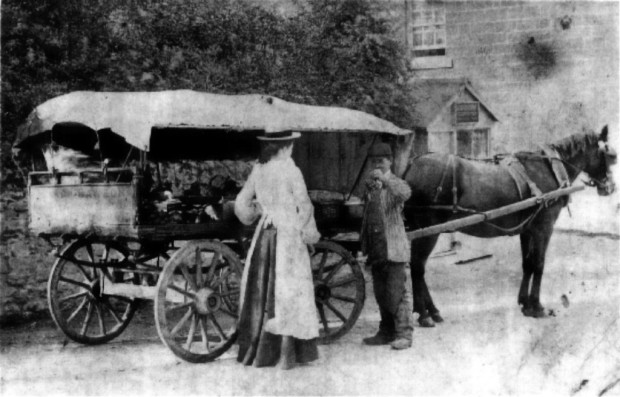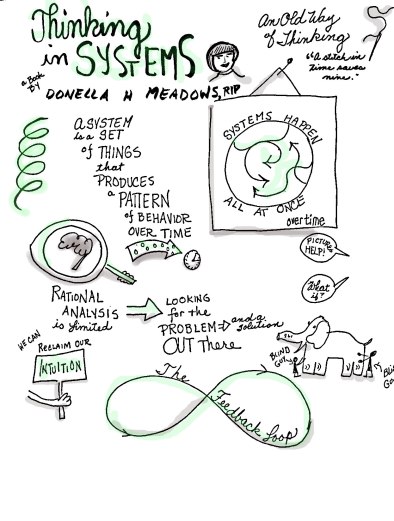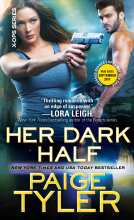“That day, my brother dared me to put pennies on the railway track.” (‘Out of Bounds’, The Chemist’s House, V. Press, 2017, p.5)
Jude Higgins has an MA in Creative Writing from Bath Spa University. Her short fictions have been published in anthologies and magazines including National Flash Fiction Day anthologies, the Fish Prize Anthology, Flash Frontier, The Nottingham Review, The New Flash Fiction Review and The Blue Fifth Review. She has been successful in many short story and flash fiction competitions. Her debut flash fiction pamphlet, The Chemist’s House, was published by V. Press in June 2017. She launched Bath Flash Fiction Award in 2015, co-runs the Bath Short Story Award and teaches creative writing with her colleague at Writing Events Bath. This year she directed the first ever UK literary festival dedicated to Flash Fiction, in Bath.
ML: You’ve just emerged (hopefully unscathed!) from your duties as Director of the UK’s first ever Flash Fiction Festival at the end of June – a two-day event of workshops, talks and readings that seemed to be extremely popular with those who attended. What would you say has surfaced from the feedback you received about the event, and can you give us a hint of how things might shape up at next year’s Festival – are you already imagining certain new elements or developments for next year, for example?
JH: I was thrilled with how the first festival went. It was such fun directing it with the 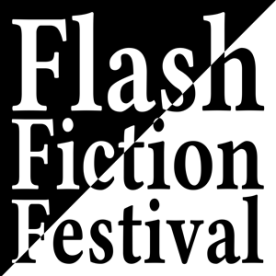 help of the team. Feedback was very positive with lots of people saying they would like to come back next year. With that in mind, I’ve already been looking at another venue with more space inside and out plus some accommodation on site. I have ideas to develop and change certain aspects following suggestions from participants. More on that soon! In the meantime, there’s the Flash Festival Anthology to look forward to. Writers who attended have been sending in stories inspired by the workshops and Ad Hoc Fiction will be compiling the book next month (September).
help of the team. Feedback was very positive with lots of people saying they would like to come back next year. With that in mind, I’ve already been looking at another venue with more space inside and out plus some accommodation on site. I have ideas to develop and change certain aspects following suggestions from participants. More on that soon! In the meantime, there’s the Flash Festival Anthology to look forward to. Writers who attended have been sending in stories inspired by the workshops and Ad Hoc Fiction will be compiling the book next month (September).
ML: The Festival took place, happily, very soon after the publication of your debut flash fiction pamphlet with V. Press – The Chemist’s House. It’s a very atmospheric read, a sequence of narratives that gently suggest a coming of age story, with all the embedded nostalgia that is perhaps inevitable when turning over the past and depicting a development from young girl to woman. Can you tell us how this sequence emerged (I think you’ve mentioned previously that you hadn’t originally set out to write a themed sequence), and what you learned about the challenges and joys of writing a linked set of flash fictions – would you call it a novella-in-flash?
JH: Meg Pokrass, who wrote one of the acknowledgements on the back of my pamphlet, said that she thought it was like a novella-in-flash, but I hadn’t intended it like that. It probably hasn’t enough of a narrative arc to quite make it in that form. The sequence emerged from the first flash fiction in the collection, ‘Out of Bounds’ which won a Retreat West monthly competition, I then realised I had a number of fictions based on growing up in Mid Wales, so I tried putting them together in a linear way and filled in a few gaps. I had wanted to write something based on the house where I lived all my childhood for a while. For years I’ve had dreams centred on different rooms, the chemist’s shop and the garden. It felt good to use those dreams to spark off fiction.
ML: I find the process of writing based on older memories fascinating (especially for someone like me, whose memory of childhood experiences can be poor). Did you find there were ‘gaps’ that became obstacles to completing the sequence? i.e. were there things you wanted to write about (physical descriptions for example) that you felt you no longer had access to? And in what (other) ways did you veer away from factual accuracy for the sake of the stories themselves?
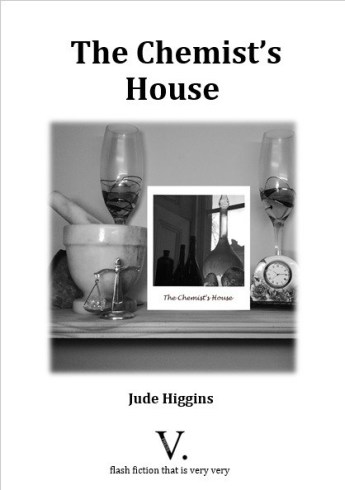 JH: For all the stories in my pamphlet, The Chemist’s House, I used small snippets of memory as the triggers and then fictionalised the rest. None of the pieces are at all accurate as memories. For example, the first piece in my pamphlet, ‘Out of Bounds’ about a brother daring his sister to do more and more dangerous things is based on only a few facts. In my father’s pharmacy, old arsenic powder was kept in the attic. And I did crush pennies on the railway track and drop marbles on people in the street from the third story of our house. Everything else is entirely fiction. I wanted to get the atmosphere of the times, so I was also relying on my general memory to add relevant detail.
JH: For all the stories in my pamphlet, The Chemist’s House, I used small snippets of memory as the triggers and then fictionalised the rest. None of the pieces are at all accurate as memories. For example, the first piece in my pamphlet, ‘Out of Bounds’ about a brother daring his sister to do more and more dangerous things is based on only a few facts. In my father’s pharmacy, old arsenic powder was kept in the attic. And I did crush pennies on the railway track and drop marbles on people in the street from the third story of our house. Everything else is entirely fiction. I wanted to get the atmosphere of the times, so I was also relying on my general memory to add relevant detail.
ML: From a technical perspective, what were the difficulties you had to overcome in finishing this pamphlet? E.g. what were you focused on, what were you aiming for, in the editing?
JH: The sequence didn’t change much in the editing but Sarah Leavesley (at V Press, the publisher) suggested making the tense consistent in all the stories. To begin with, some were in present tense and some in the past. I changed nearly all of them to the past, which meant altering some stories quite a lot. The title story, ‘The Chemist’s House’, is the exception. I left that in the present tense because I thought that was more suited to the dreamlike nature of the piece. Michelle Elvy, who also wrote an acknowledgement for me for the cover, is also a brilliant editor and pointed out some grammatical errors and writing ‘tics’ of mine, which was very helpful.
ML: It seemed noticeable that the past tense added to the sense of nostalgia running through the pamphlet. Do you think there’s a natural leaning for people to resort to writing flash fiction in the present tense, more so than for other fiction? If so, why would that be the case and what is the impact?
JH: I always think it is useful to try out different tenses to see how that changes the story and the characters and the voice. My editor at V Press didn’t suggest using the past tense, she just said keep to either past or present for consistency. But I think the past tense worked better in the sequence. Second person is also a bit of trend in flash fiction. I’ve read that editors in magazines receive huge numbers of stories written in the second person. I do like using it myself, sometimes successfully to create a universal feel. Just flipping through the first thirty pages of To Carry Her Home, Bath Flash Fiction Award, Vol One I’ve found stories written in past and present tenses, using first, third or second person points of view. And this represents world-wide writing, so perhaps there is not a natural leaning towards the present. It would be interesting to check the whole book to see if most write in the present tense. I haven’t done that.
ML: You’re very active these days on the UK literary scene, especially in terms of flash fiction (with both the Festival and the Bath Flash Fiction Award which you organise), but also with short stories, as you co-run the Bath Short Story Award. When you look back at how you got to this stage, what would you say were the formative influences (whether from childhood or adulthood) that led you in this direction of becoming a writer and working in literature?
JH: I was most influenced as a writer by joining a writing group led by novelist and poet, Lindsay Clarke back in the 1990s. That was the first time I actually finished a story which, at the time felt like a huge step. I did a certificate in Creative Writing at Bristol University some years later and after I stopped working as a psychotherapist, I completed an MA in Creative Writing at Bath Spa.
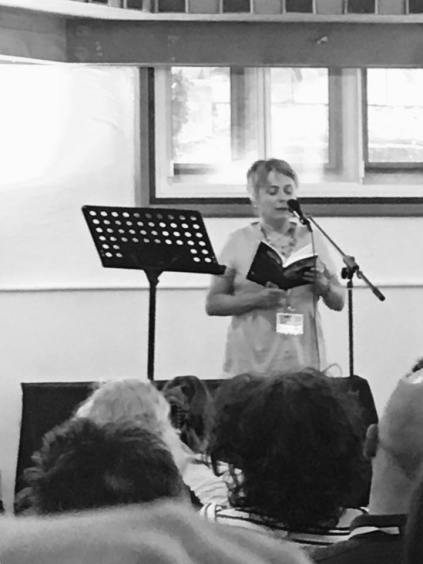 I feel I’ve learned a lot about writing at quite a late stage in my life, but I’ve always read a lot of short stories and it was pretty exciting to discover recently that flash fiction was the form that suited me the best. Reading so many styles of short fiction as an initial reader in the competitions has also helped me develop as a writer. I have read several thousand short stories in the past few years and several thousand more flash fictions. In addition I read a lot of flash fictions in online magazines and in print collections. That immersion rubs off somehow, even if, when I’m reading, I am not consciously thinking how writers make something work well. When I was a therapist I ran many groups, and I am also a qualified teacher so I am still using some of those skills in the writing groups I run and the events I organise.
I feel I’ve learned a lot about writing at quite a late stage in my life, but I’ve always read a lot of short stories and it was pretty exciting to discover recently that flash fiction was the form that suited me the best. Reading so many styles of short fiction as an initial reader in the competitions has also helped me develop as a writer. I have read several thousand short stories in the past few years and several thousand more flash fictions. In addition I read a lot of flash fictions in online magazines and in print collections. That immersion rubs off somehow, even if, when I’m reading, I am not consciously thinking how writers make something work well. When I was a therapist I ran many groups, and I am also a qualified teacher so I am still using some of those skills in the writing groups I run and the events I organise.
ML: How would you say your previous career as psychotherapist (a specialism in Gestalt therapy, I believe) feeds into your writing? Are you aware of ways of thinking or observing, for example, that you wouldn’t have had without your training and practice as a therapist?
JH: I am probably influenced by many years of listening to people and the particular language they used to describe their experience. In a session I often asked people to ‘unpack’ the language. For example if a person said they were depressed, I would be likely to enquire how they experienced that. Because the word on its own means nothing. Just like in fiction, when you want to convey a vivid impression of a character’s experience.
ML: Who are your influences as a writer? What is it you admire about them?
JH: I’m not quite sure who my influences are at the moment. I do read an enormous amount of flash fiction both for the competitions and online and in printed form. Recently I’ve been very excited by coming across Etgar Keret quite late in the day. His stories are often both funny and moving. I like that combination.
ML: How would you say flash fiction differs from other forms of writing, such as prose poetry or (verse) poetry or short stories? What is your own relationship with these other forms (or even with other forms not mentioned)?
JH: I read the prose poetry of American poet Louis Jenkins recently and, to me, his poems could equally be called flash fictions. Sometimes people say flash fictions require more narrative drive. In an interview I did with Kathy Fish for Bath Flash Fiction she said, “I believe that flash, in order to be “successful” must convey some feeling of movement or meaningful change. This is a subtler form of plot and arc that accommodates the more innovative forms of flash.” For me many prose poems have that movement. At the 2018 Flash Fiction Festival, I’m hoping we can have panels or workshops on the prose poetry/flash fiction distinction. Short stories often have a stronger narrative arc, but again sometimes they don’t. Before I came fascinated with writing flash, I did write short stories and was successful in a few competitions. In recent years, I learned most about short story writing at a ‘Stinging Fly’ work shop in Ireland tutored by Sean O’Reilly, who drilled down into story drafts we brought for feedback, to find out what they were really about. I now ask myself ‘what is this really about?’ when I am writing any fiction. But then I still often don’t know, even after several drafts. In both flash fiction and the longer short form, I am interested in the use of language, the layers of meaning and what happens off the page. I was very pleased when someone told me they kept thinking about one of my flash fictions after they’d finished reading it.
ML: The government is eradicating literature by burning all books. You can save one from the fire and run away to the woods to preserve it, where you will share it with fellow rebels and future generations. Which do you save and why?
JH: Given the context, I would take the novel Catch-22 by Joseph Heller. I haven’t read it for years, but in rereading I hope it would still underline the absurdity of bureaucracy and fascist governmental action and incite further rebellion in me and others.
=====
You can purchase The Chemist’s House from V. Press here:
http://vpresspoetry.blogspot.co.uk/2017/06/launching-chemists-house.html
Other links:
http://judehiggins.com/
https://bathflashfictionaward.com/
http://www.bathshortstoryaward.org/
Twitter: @judehwriter
Share this:

